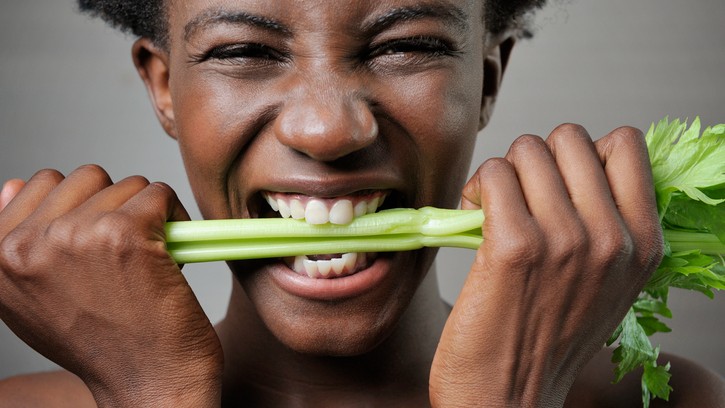The best and worst foods for teeth
Want a pearly white smile? Here’s what you need to know about the best and worst foods for teeth

Get the world’s most fascinating discoveries delivered straight to your inbox.
You are now subscribed
Your newsletter sign-up was successful
Want to add more newsletters?

Delivered Daily
Daily Newsletter
Sign up for the latest discoveries, groundbreaking research and fascinating breakthroughs that impact you and the wider world direct to your inbox.

Once a week
Life's Little Mysteries
Feed your curiosity with an exclusive mystery every week, solved with science and delivered direct to your inbox before it's seen anywhere else.

Once a week
How It Works
Sign up to our free science & technology newsletter for your weekly fix of fascinating articles, quick quizzes, amazing images, and more

Delivered daily
Space.com Newsletter
Breaking space news, the latest updates on rocket launches, skywatching events and more!

Once a month
Watch This Space
Sign up to our monthly entertainment newsletter to keep up with all our coverage of the latest sci-fi and space movies, tv shows, games and books.

Once a week
Night Sky This Week
Discover this week's must-see night sky events, moon phases, and stunning astrophotos. Sign up for our skywatching newsletter and explore the universe with us!
Join the club
Get full access to premium articles, exclusive features and a growing list of member rewards.
If you want a healthy smile, you’ll already know about the importance of brushing, but have you considered your diet? Sugar-laden products are among the worst foods for teeth as they create the conditions for tooth decay. Instead, focus on eating more nutrient-dense foods that strengthen your teeth and protect against cavities.
There’s so much information about nutrition for weight loss that the impact of the food we eat on our teeth can get overlooked. Here, we’ll delve into the best and worst foods for teeth so you can make smarter choices. We also asked the experts for their tips on good oral hygiene.
If you want a brighter smile the number one thing you can do is to brush regularly. The American Dental Association recommends brushing twice a day for two minutes each time. Check out our guide to the best electric toothbrushes to take your brushing routine to the next level.
For now, we’ll dig into the science behind the best and worst foods for teeth.
The worst foods for teeth
Foods high in sugar
Candies, cookies, and cakes are not only bad for your waistline, but they are also among the worst foods for your teeth.
“When the bacteria in your mouth feed on sugar, it produces an acid by-product that strips the enamel from your teeth,” says Dr Victoria Veytsman, a celebrity cosmetic dentist. When sugar comes into contact with the plaque on your teeth, it stimulates acid production. In turn, the acid attacks the outer enamel layer of your teeth and makes you vulnerable to cavities.
The risks of eating sugary foods are well-documented. A 2013 review in Acta Medica Academica shows that increased sugar consumption is associated with higher levels of tooth decay.
Get the world’s most fascinating discoveries delivered straight to your inbox.
Got a sweet tooth? Try replacing sugary snacks with sugarless gum. “Sugarless gum containing xylitol can help reduce bacteria in your mouth and increase the production of saliva,” says Veytsman.

Citrus fruits
Citrus fruits like lemons, oranges, and grapefruits contain high amounts of acid and sugar. The result? This double whammy of acid leads to erosion of the protective enamel, according to the American Dental Association. While citrus fruits offer health benefits, it’s better to enjoy them in moderation and as part of a meal to minimize acid production.
- Related: Lemon water benefits: Are there any?
Simple carbs
Simple carbohydrates like potato chips and white bread are among the worst foods for teeth. Research from 2011 in the Pediatric Dentistry Journal found that eating processed carbs, such as potato chips, was associated with higher levels of tooth decay. Potato chips tend to get trapped in between your teeth. These remnants of food cause plaque to accumulate, putting you at risk of tooth decay. It’s a similar story with bread, which forms a paste that coats the teeth and can increase plaque levels.
Want an alternative? Try switching out simple carbs for complex, wholegrain carbs, such as 100% wholewheat breads, quinoa, potatoes and oatmeal.
Hard foods
You may be forgiven for thinking that ice is harmless as it only contains water. Yet chewing ice can wreak havoc and even result in chipped teeth. Remove the temptation to chew ice by chilling your drinks in the freezer or using crushed ice.
“Chewing on ice is bad as it creates micro-cracks on the enamel, which can cause sensitivity and chipping of the teeth. Many of my patients come in with cracked teeth that need to be replaced with dental implants because of eating popcorn,” says Dr Sanda Moldovan, a periodontist and nutritionist at Beverly Hills Dental Health and Wellness.
The best foods for teeth
Crunchy fruit and veg
Fruit and veggies, like carrots, celery, and apples are a superb choice for your teeth. While not a substitute for brushing, they can act as a natural toothbrush and even dislodge plaque. There’s evidence that eating plenty of vegetables can be good for your teeth as well as your overall health. A 2021 review in the Journal of the Academy of Nutrition and Dietetics found that low vegetable intake was associated with higher levels of tooth decay.
What’s more, chomping on veggies like celery stimulates saliva production, which helps to remove remnants of food. As a bonus, saliva contains trace amounts of calcium and phosphates, which toughen your enamel.
Calcium-rich foods
Want to keep cavities at bay? Calcium is your friend: it plays an essential role in strengthening your enamel. Meeting your calcium needs has several benefits. A 2017 study in Clinical Oral Investigations found that young women with lower calcium intake had an increased risk of oral disease.
Incorporating foods like milk, cheese, and yogurt into your diet will boost your calcium intake. On a vegan diet? There are plenty of plant-based alternatives, such as leafy greens, tofu, and beans, which are rich in calcium.

- Related: Is milk good for your teeth?
Lean protein
Lean proteins like chicken, fish, and eggs are all rich sources of phosphorus. This mineral is crucial for rebuilding enamel and can protect against cavities, according to the American Dental Association. Even better, many lean sources of protein also contain low amounts of sugar, which is beneficial for your teeth.
Nuts
Nuts are a fantastic choice for a tooth-friendly snack. They pack a nutritional punch with minerals like calcium, which strengthen the enamel according to the American Dental Association. Tuck into almonds as an alternative to empty-calorie snacks.
Tips for maintaining good oral hygiene
Veytsman has the following advice: “Going to the dentist regularly and brushing and flossing your teeth all help keep up your oral hygiene.”
The American Dental Association recommends using fluoride toothpaste to help protect against tooth decay, especially if you live in an area where the water is not fluoridated. Find out more about the effects of fluoride in our reference guide: Is fluoride good for your teeth?
Don’t forget to floss. It’s a fantastic way to thoroughly clean those hard-to-reach spots. Learn how to floss your teeth here.
Louise Bond is a UK-based writer specializing in health and wellbeing. She has over eight years of experience in management within health and care and brings this passion and expertise to her writing. Louise has been published in The Guardian, Planet Mindful and Psychreg among others. She is at her happiest when she is out in nature, whether that’s on an invigorating hike or pottering in the garden.
 Live Science Plus
Live Science Plus











